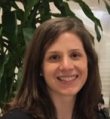Building Effective Adult Immunization and Life-course Vaccination Programs in a Post-Pandemic World
The Sabin Vaccine Institute’s Vaccine Acceptance & Demand initiative is proud to provide funding to 7 grant partners awarded through the 2023-2024 Social and Behavioral Research Grants Program. This blog is the second in a series examining the selected research projects based on one of three themes: zero-dose children, life-course immunization, and operationalizing of the WHO BeSD Framework.
Goal 3 of the United Nations Sustainable Development Goals (SDGs) is to “ensure healthy lives and promote well-being for all at all ages”, promoting a life-course approach within global health systems that addresses health needs as they evolve over time. Life-course approaches typically incorporate adult healthcare, which has not been as prioritized as healthcare for children and the elderly. Catch-up vaccination across the lifespan permits individuals who have missed vaccine doses to later receive those for which they are eligible and can improve functions of national immunization programs. As such, its integration into primary healthcare services serve as an important catchment tool to manage the emergence and re-emergence of infectious diseases, one of the strategic priorities of the Immunization Agenda 2030 (IA2030). Establishing routine life-course vaccination programs while supporting the health workers driving these programs can help build confidence in vaccination beyond childhood.
These global agendas, along with the significant challenges to COVID-19 vaccination acceptance, demand, and delivery, have made clear that investment in adult immunization and life-course vaccination programs should be a policy priority. The Sabin Vaccine Institute is proud to support the following 2023-2024 Social and Behavioral Research Grant partner in pursuit of solutions to build effective life-course vaccination programs in a post-pandemic world. This project seeks to investigate and evaluate solutions to improve vaccination uptake within a hard-to-reach, nomadic population in Sierra Leone. The knowledge gained from this project will have a variety of uses for mobile vaccination teams, including the use of a Community Resilience Model (CRM). Findings will also support immunization-related policy and programming related to strengthening the skillsets of vaccinators and their teams, and community-based communication and vaccination campaigns.
Meet Our Project Team Focused on Life-course Immunization

Evaluating an Integrated Family-based Vaccination Program to Support Vaccine Uptake in Vaccine Hesitant Populations in Sierra Leone: A Life-course Vaccination Program
Dr. Zephon Lister and Dr. Susanne Montgomery of Loma Linda University, along with Dr. Desmond Kangbai of the Sierra Leone Ministry of Health and Sanitation, will evaluate a new integrated family-centered life-course approach to increase vaccine uptake in hard-to-reach, nomadic communities along Sierra Leone’s northern border. The project operates in conjunction with a pilot curriculum using the CRM that was developed for healthcare workers in a prior Sabin grant.
Using a quasi-experimental, mixed-methods study design, the team will investigate if adding an expanded resiliency training and embedding a wellness team member with the mobile vaccination teams to support social mobilizers improves the resiliency, mental health, and wellbeing of both mobile vaccination team members and the community groups they serve. Nine of 18 mobile vaccination teams will receive the training intervention. Data collected through pre- and post-intervention surveys and process evaluations of both mobile vaccination team members and a random sample of community members vaccinated by the mobile teams will assist with understand the following:
- Knowledge, ability and confidence of disseminating the CRM model to others;
- How the integration of the CRM model curriculum helped mobilizers engage and communicate with community; and
- How CRM helps those trained
This innovative point-of-contact life-course strategy attempts to address the challenge of overall low vaccine uptake (<50%, as identified by the Ministry of Health and Sanitation) in isolated areas of Sierra Leone and better prepare mobile vaccination teams to be more effective when supporting their communities. Findings from this project will inform the policies and practices for community-based life-course vaccination within rural areas of Sierra Leone, with potential applications for other LMIC settings.
“Thanks to previous funding by Sabin, we will be able to use our findings to support health workers’ knowledge and skill in discussing vaccines with hesitant patients and community members to build on the efforts of mobile vaccination teams in Sierra Leone. This additional training would also support the resilience, mental health and wellbeing of the mobile vaccine team members and the communities they serve as they travel throughout the country.” – Dr. Zephon Lister
“We are excited that in this grant we are able to join the Sierra Leonean government in their exciting ‘point of contact’ vaccine efforts by training their outreach teams in vaccine communication and CRM stress management techniques as well as embedding our Sabin vaccine research experienced staff with their outreach teams for support.” – Dr. Susanne Montgomery
“We want to use the findings of this research to develop policies or update our national immunization policy that guides the operations of the expanded program in Sierra Leone. The findings will be disseminated to the leader of the MoHS and the District Heath Management teams in all 16 districts in the country. We are at a point where we need our policies to be scientifically guided, and I see this grant as a major milestone in that direction.” – Dr. Desmond Kangbai
The Sabin Vaccine Institute is a leading advocate for expanding vaccine access and uptake globally, advancing vaccine research and development, and amplifying vaccine knowledge and innovation. Unlocking the potential of vaccines through partnership, Sabin has built a robust ecosystem of funders, innovators, implementers, practitioners, policy makers and public stakeholders to advance its vision of a future free from preventable diseases. As a non-profit with more than two decades of experience, Sabin is committed to finding solutions that last and extending the full benefits of vaccines to all people, regardless of who they are or where they live. At Sabin, we believe in the power of vaccines to change the world.
Authors
Danielle Countryman

Theresa Sommers, PhD, MPH

VARN2023 Conference: When Communities Lead, Global Immunization Succeeds
Explore the report, presentations and recordings from the VARN2023 Conference.

